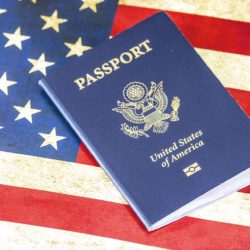
Many hopeful applicants get nervous prior to a visa interview as they worry about whether a consular officer will grant them visa or deny their application. In most cases, visa applicants are interviewed by a US embassy Consulate who reviews the application information and supporting documents submitted by visa applicants. After reviewing the available information, a consular officer may approve or deny an application. The consular officer provides reasons for visa denial based on the governing provisions of the US Immigration law.
There are several grounds for visa denial. Some of which are attributed to the insufficiency of your supporting documents, your inability to prove ties to your home country, or your record of the past and current activities like becoming a drug dependent, which can affect your eligibility to obtain a US visa. For cases that need a waiver of inadmissibility, the consular officer may advise you to apply for one. If the consulate forgot to inform you of the grounds for your denial, you can ask the consular officer during an interview to explain why your visa application was denied.
A consular officer informs each applicant of the decision reached in a particular case either verbally during an interview or in writing. Applicants who are considered qualified are issued US visas after completing the administrative process in a US embassy.
Can I reapply for a US Visa after my application was disapproved?
There are various restrictions imposed in certain types of visas in terms of reapplying. Some US visas, like B-2 visa for tourists or temporary visitors, do not set a limit on the number of times an applicant can reapply.
If you were found ineligible for a visa, you must file a new visa application and pay the corresponding fee again. The fee previously paid is non-refundable and applies only to the earlier application that was disapproved.
If you were denied under section 214(b) of Immigration and Nationality Act (INA), you must show proofs that some significant changes have happened since you filed your application, which the consular officer has disapproved. The important changes should prove the existence of a circumstance, which you failed to prove before and for which you were previously refused. A visa denial under this section may be the consequence of the following flaws:
- You failed to convince the consular officer that you qualify for a nonimmigrant visa; or
- You failed to overcome the presumption of immigrant intent such as when you did not establish sufficient ties to your home country that will force you to return to your home at the expiration of your temporary visitor visa. H-1B and L visa applicants, together with their spouse and minor children are not required to over the presumption of immigrant intent.
Furthermore, if you were denied US visa under Section 221(g) of INA, you do not need to submit a new application. Section 221(g) of INA requires that your supporting documents and your application must be complete in essence and form in order for a consular officer to acquire all of the information necessary to determine whether or not you are eligible for a US visa. If you fall short of the prerequisites under this section, your will not be considered ineligible but your case becomes pending until you submit the missing documents. You have one (1) year, from the time your application was disapproved, to submit the missing information. If one year has passed without the additional requirements being submitted, you will need to file a new application and pay another fee.
Most of the time, your unfamiliarity with the procedures are ones causing delay in the application. To prevent delay or visa denial, you must let your immigration attorney handle the case.






